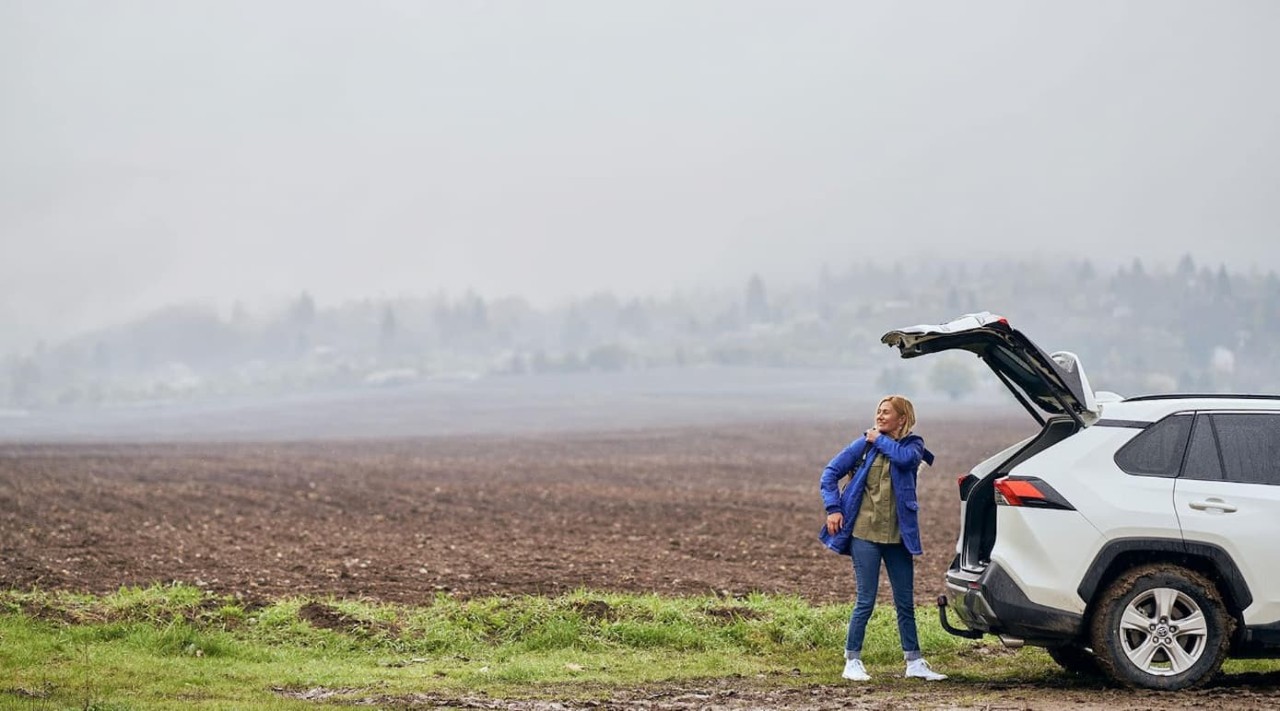Driving Safely in Heavy Rain and Floods: Essential Tips from Allianz Ireland
1. Plan Ahead
- Check the weather forecast: Avoid driving if heavy rain or flooding is expected. Is your journey really necessary? If not then it is always best to stay at home.
- Know your route: Stick to main roads and avoid areas prone to flooding.
2. Prepare Your Vehicle
- Check your tyres: Ensure they have adequate tread depth (1.6mm is the legal minimum in Ireland, but 3mm is better for wet conditions).
- Replace wipers: Faulty wipers reduce visibility in heavy rain.
- Test your lights: Use dipped headlights to improve visibility for yourself and others.
3. Why You Should Avoid Driving Through Floods
Driving through floods is risky and should be avoided whenever possible. Here’s why:
- Water damage to your vehicle: Floodwater can damage your engine, electronics, and interior. If flood water gets into the car’s air intakes and reaches the cylinders, it cannot compress. This causes the engine to seize, bending or breaking internal components like pistons, rods, and crankshafts. This type of damage can render the engine irreparable. Floodwater entering the fuel system can dilute or contaminate fuel, causing engine misfires or failures. Water in the oil system can reduce lubrication, leading to increased wear and tear or even engine failure.
- Damage to EVs: Modern EV batteries are sealed ad designed to withstand exposure to water, however prolonged submersion or exposure to high-pressure water can breach seals, allowing water into the battery pack. Water intrusion can short the battery cells, causing permanent damage, or in rare cases a risk of fire.
- Risk of stalling: If water enters your exhaust or air intake, it can cause your engine to stall, leaving you stranded.
- Loss of control: Floodwater can hide debris, potholes, or uneven surfaces that can damage tyres or suspension.
- Being swept away: Just 30cm of moving water is enough to float most vehicles, leading to a serious risk of being swept off the road.
4. How to Handle Flooded Roads If You Must Cross
If you encounter a flooded road and believe it is safe to proceed:
- Assess the water depth: Never drive through water deeper than the bottom of your car's doors.
- Drive slowly and steadily: Enter the water at 5-10 km/h to avoid creating waves that could flood your engine.
- Stick to the highest part of the road: Floodwater is usually shallower here.
- Test your brakes after exiting: Drive slowly and press the brake pedal gently to dry them.
- If you’re unsure of the water depth or cannot see the road beneath the water, do not attempt to cross. Turn around and find an alternative route.
5. Drive Carefully in Heavy Rain
- Reduce your speed: Wet roads increase stopping distances significantly.
- Avoid harsh braking or accelerating: Sudden movements can cause skidding.
- Keep a safe distance: Double the usual gap between you and the car in front.
6. Stay Alert for Hazards
- Floodwater can conceal a variety of dangers, such as:
- Hidden potholes or uneven road surfaces.
- Floating debris that could damage your vehicle.
- Fallen trees, and other debris or obstacles on the road.
- Deep water that could submerge and disable your car.
7. Have an Emergency Kit
- Keep essentials in your car, including:
- A torch
- High-visibility jacket
- Mobile phone charger
- Blanket
- Non-perishable snacks and water
Driving in heavy rain and floods can be challenging, but by taking precautions and knowing your limits, you can stay safe. Remember, if you’re unsure about crossing floodwaters, it’s always better to turn back and find an alternative route.
For more advice or to learn about our car insurance policy, visithere.
This guidance is for general information purposes only. Allianz accepts no responsibility or liability for any losses that may arise from any reliance upon the information contained in this guidance. Failure to take all reasonable care to prevent loss or damage may result in Allianz declining to cover a claim.
Information correct as of date of publishing.






